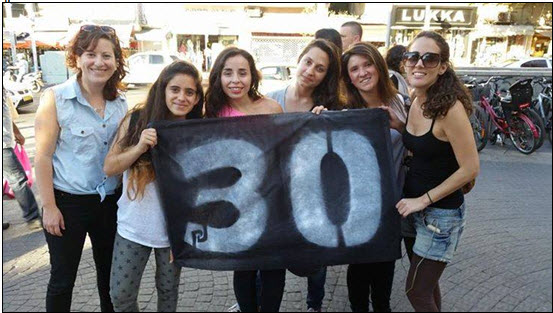On Tuesday, January 6, Attorney-General Yehuda Weinstein said that legislation to raise the minimum wage from NIS 4,300 to NIS 5,000 a month over two years could move forward, even during an election campaign. This position constitutes an abrupt about face from that expressed by Weinstein in late December, when he raised objections to advancing such legislation in the run-up to the March 17 elections. In particular, Weinstein then objected to a clause which would ensure that the minimum wage would be set to 52 percent of the average wage.
In the weeks before the governing coalition collapsed in early December, under threat of a general strike, the Histadrut labor federation negotiated the minimum wage hike with private and public sector employers.
As the government’s coalition began unraveling, the Histadrut signed a deal with business leaders, leaving aside for the meantime issues of public sector workers. Several weeks later, neo-liberal Prime Minister Benjamin Netanyahu met with officials from the Finance Ministry and the Histadrut, and agreed to adopt the earlier deal’s guidelines and advance them through legislation before the elections. Netanyahu said he would advance the increase for the public sector as well, but Weinstein’s opinion expressed in late December threw that option into doubt.
According to the agreements now given the green light by the Attorney General, the minimum wage will be raised to NIS 4,650 starting in April 2015, to NIS 4,825 in July 2016, and to NIS 5,000 as of January 2017.
MK Dov Khenin (Hadash) vowed to continue pushing for the original minimum wage goal of NIS 5,300, saying the agreement on the increase was a good first step, but would not raise enough families from below the poverty level. He also criticized Netanyahu for waiting until the election season to advance such legislation. “Up until now, Netanyahu opposed our legislation on the subject,” said Khenin, “but it turns out that elections can cause even him to address the social and economic reality in Israel.”
Related:
- May Day: Thousands demonstrate in Tel Aviv, Haifa, Nazareth and Beer-Sheva for workers’ rights
- 61 lawmakers already support MK Khenin’s campaign for at least 30 shekels an hour
- Following Hadash Fraction Demand: Histadrut Declares General Labor Dispute
- 64 lawmakers already support the bill ‘minimum wage 30 shekels an hour’
- As Minimum Wage Talks Stall – Histadrut Set to Call for a General Strike from December 7
- Histadrut Calls Off Strike as Minimum Wage Deal Reached



